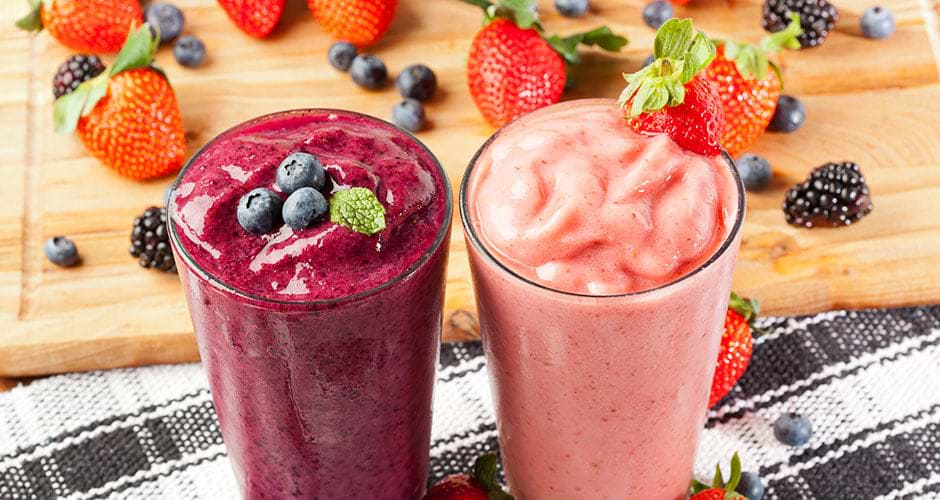
Increase Fertility By Reducing Inflammation: A Nutritionist's Perspective
Written by Aimee McNew, MNTShare
Google the words "what should I eat while trying to get pregnant" and you'll come back with hundreds of opinions, many of them countering each other. How on Earth are you supposed to know what's best? How do you get the most impact nutritionally?
As a nutritionist, I am not a fan of throwing down a long list of rules you can't break. That being said, there are some basics that most will agree on. If you want to make the most of trying to conceive, it's a good idea to avoid or strictly limit the following foods and beverages:
- Trans fats, fake butter, and fried foods
- Farmed fish and high-mercury fish
- Soda and alcohol
- Soy
- Gluten and corn
- Processed foods
- Caffeine
- Anything you're allergic to
Some of those might seem pretty self-explanatory (trans fats, anyone?), but I like to boil all of the above down to one main reason for avoidance: these foods aggravate our inflammatory response.
Fake fats, fried foods and toxins (like mercury present in farmed fish), excessive refined sugar (like soda), alcohol (because it overloads the liver), soy and gluten (well-known for being hard to digest), processed foods (usually full of soy, corn, gluten, and sugar), and foods that cause an allergic reaction all have negative inflammatory effects.
Preparing the body to house a baby for 9 months is no small feat, especially if fertility problems are present, and the most important factors are to support a healthy and balanced inflammatory response, and keep blood sugar stable.
Even on a perfect cycle where there are no fertility problems present and timing is perfect, a woman only has a 20-25% chance of getting pregnant. After that, nearly 1 in 4 pregnancies will end in miscarriage for one reason or another. While it may sound dismal, a woman dramatically increases her odds if her body is healthy and her body systems are balanced, which when present can signal the adrenals to produce other hormones such as stress hormones instead of the reproductive hormones necessary for conception.
The best way to support a healthy inflammatory response in the body is to eat vegetables. Lots of them. Aim for 8 to 10 cups daily, but even if you only hit half that, just make sure you eat more than you were. Next, be sure to eat one-half to one cup daily of berries or cherries, which are high in free radical scavengers that protect our bodies from oxidative stress. Drink plenty of filtered water, cut back on coffee and black tea, and get some form of exercise every day. It doesn't have to be a five mile run or 45 minutes of hard cardio to count, so even if you walk for 10 minutes or do a series of basic stretching, any kind of movement improves digestive function and mood.
Here's a smoothie recipe that can help you meet those daily requirements.
Ingredients:
- 2 cups unsweetened almond milk
- 1/2 cup blueberries
- 1/2 cup raspberries
- 2-4 cherries
- 1/2 cup spinach
- 1/2 cup kale
- 2-3 Tbsp of organic pumpkin seed or hemp protein powder
- 2 tsp of organic, raw honey
Directions:
Blend all ingredients together and enjoy! The recipe is easily customizable for fruit and vegetable swaps, but keep in mind that adding sugary fruits will decrease the health benefits. I like the pumpkin seed and/or hemp protein powder because they're gluten free, grain free, and support a healthy inflammatory response!
References
- Chavorro et al. A prospective study of dietary carbohydrate quantity and quality in relation to risk of ovulatory infertility. European Journal of Clinical Nutrition. 2009. January.
- Silva et al. Impact of lifestyle choices on female infertility. Journal of Reproductive Medicine. 1999. March.
- Planck, Nina. (2009.) Real food for mother and baby. New York, NY: Bloomsbury, USA
- Isaacs, Scott MD, FACP, FACE. (2012.) Hormonal balance, 3rd ed. Boulder, CO: Bull Publishing Co.
Writer Aimee McNew has a Master's in Holistic Nutrition Therapy (MNT) and is also a Certified Practitioner of Nutrition Therapy (CNTP).
For educational purposes only. This information has not been evaluated by the Food and Drug Administration. This information is not intended to diagnose, treat, cure, or prevent any disease.

















